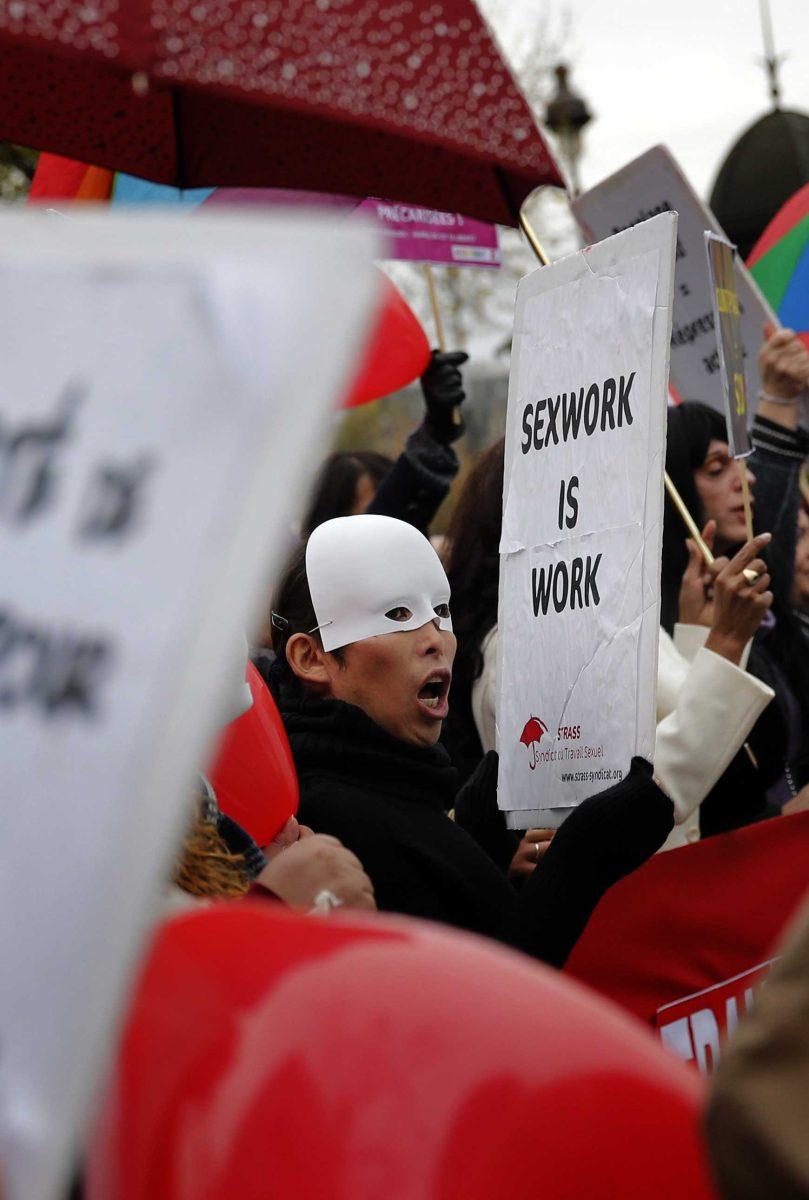Human trafficking has become an enormous problem in Baton Rouge. Recently, state police busted a massage parlor and found evidence indicating human trafficking.
State police investigated and found that females were being housed in office spaces and believe they were forced to perform sexual acts for money. Of course, this is a heinous sex crime.
Human beings are going to have sex. Different groups have tried to prevent humans from this for thousands of years, to no avail.
What we should be preventing is humans who force other humans to participate in sexual acts without their consent. These acts are sex crimes, most commonly rape.
But let’s be clear — the money exchanged is not what makes it a sex crime. The lack of enthusiastic consent is.
The current illegality of prostitution protects few and incriminates many — as consenting adults are criminalized.
In the event of prostitution, one individual provides a service. The other individual gives payment for said service. If both enthusiastically agree to the sexual act, it cannot be defined as a sexual crime.
In the event of sex trafficking, individuals are treated as property and used by another for profit. Those who are involved cannot give consent because they are being held in fear.
Prostitutes provide a service in the same way a hair dresser provides a service. You do not own or disrespect the hair dresser because you are paying them.
The exchange of money gives you no right to the body or tools of the hair dresser — there is no exchange of ownership.
In most states, prostitution is considered a misdemeanor, cited as a crime that disrupts the order of a community.
The only reason that prostitution is disrupting the order of a community is because we have no proper system of regulation. We sweep it under the rug with sex crimes.
Prostitution is not a sex crime. It is a legitimate working business, just as all sex work is. Strippers, prostitutes and adult film stars are valuable economic resources when regulated and taxed.
Critics of sex work will argue that it is in the best interest of the individual to abandon such a physically, emotionally and mentally harmful work. They cite statistics in which sex workers suffer from homelessness or substance dependency.
They neglect to devise any sort of action that would help those workers who suffer from either condition.
Opponents of prostitution opt to legally abandon these individuals who they claim to care so much about, proving that their morals only reach as far as a jail cell.
United Kingdom newspaper The Telegraph reported that 80 percent of women do not report sexual abuse, mostly due to fear of the abuser.
Prostitution will continue to exist, regardless of its legality. And in the face of a legal system that punishes prostitutes, it is highly unlikely that they will report any mistreatment.
This leaves the perpetrator free to continue harming anyone.
In August, Switzerland developed and executed its plan to regulate prostitution. Drive-in “sex boxes” are garage-sized buildings in which a prostitute can provide his or her service.
The structures are situated on the outskirts of Zurich and are closely monitored by authorities. The prostitutes are also given panic buttons, should anything go wrong while providing their service.
The prostitutes also pay a nightly tax for their use of the structure.
Swiss director of social work for sex workers Michael Herzig reported that the guarded prostitution sites are working.
Zurich lawyer, Daniel Hartmann spoke to USA Today on the impact of their program. “Prostitutes have better working conditions here,” he said. “They’re not exposed to the bosses, to the pimps in here.”
Regulation is necessary — in addition to legalization of prostitution — to shut down and prevent human trafficking rings.
Let’s not continue making criminals out of victims or victims out of consenting adults.
Jana King is a 19-year-old women’s and gender studies sophomore from Ponchatoula.
Head to Head: Legalizing and regulating prostitution needed to end human trafficking
By Jana King
December 4, 2013
A French sex worker demonstrates outside the National Assembly in Paris, Friday, Nov. 29, 2013. Protestors gather against a government plan to penalize clients caught in the act of soliciting a prostitute. (AP Photo/Christophe Ena)






